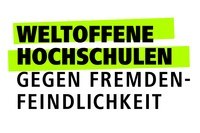Zum Profil
MSc Lecture/Tutorial Smart Process Analytics
Lecturer
Lecture
Topic
The lecture Smart Process Analytics (SPA) is on how we can support businesses by analyzing and interpreting data that is permanently generated by running software applications, smart devices, and/or general environmental services.
In particular, the lecture introduces how such an analysis can take place by using advanced concepts from the field of process mining. The topics that are covered by the course are as follows:
data collection and preprocessing
data analysis with process mining
deterministic process mining algorithms
probabilistic process mining algorithms
predictive process analytics
context-aware (=smart) process analytics
The exercise of the SPA course deepens the concepts introduced in the lecture by applying them in an extensive case study that has to be worked on in groups of 4-5 students. In the tutorial, the students are provided with process log data from a real-world business case, alongside with context information provided by sensors and/or online services, if available. The task of the case study is to perform log data preprocessing, and, furthermore, smart and predictive process analytics with the concepts and tools introduced in the lecture. The results have to be presented and discussed in a final presentation session.
Language
The lecture will be held entirely in English to open it for non-German speakers. However, in case everyone speaks German, we will change to German.
The lecture and the exercise dates will not alternate regularly. I.e., the lecture will be held from November to December on both the lecture and exercise dates, and in December we will switch to the exercise.
Preconditions
It helps you (but it is not mandatory) if you know basics of business process modeling (ideally, you have already visited BPM). For parts of the case study, you should be able to develop small applications (e.g. In Java or Python).
How to get Credits
The course is worth 6 ECTS, and at the end, you will get one single combined grade. It will consist 50% of a written examination (60 minutes) on the topics of the lecture and 50% of the results of your case study work (this is because the exercise makes a considerable amount of work!).
The course can be counted for the following Master programmes:
Master Wirtschaftsinformatik: elective Wirtschaftsinformatik
Master Informationsmanagement: elective Wirtschaftsinformatik
Master Web (and Data) Science: elective
Master Computer Science: elective Computer Science
Master Computer Vision: elective Computer Science
Particular Topics and Timetable
All dates and topics can be found soon in the OLAT course.
Written Examinations
All dates and topics can be found soon in OLAT.
Literature and Material
We will provide any relevant literature. All documents (if electronically available), slides and tools will be uploaded and made accessible on OLAT. Inaugural reading is not necessary. We will introduce all relevant basics in the lecture.
Registration
Please note that you have to attend a mandatory assessment test to get access to the course. Throughout the past semesters, many students had different expectations and insufficient prior knowledge to be able to follow the course. Thus, this assessment test will provide you with a recommendation of whether this course is suited for you or not. If you hold a Bachelor’s Degree from the School of Computer Science of the University of Koblenz-Landau (FB4) or already passed the exam or case study in a previous semester, then you DO NOT NEED TO ATTEND THE ASSESSMENT TEST. The test will be conducted on the first tutorial date, which is Thursday, 2022-10-27 at 14:00h in Room A 213.
Please register for the lecture on KLIPS so that we can estimate the number of participants. Furthermore, you need to register on OLAT with your University of Koblenz e-mail address to get access to the literature and material pages. After the lecture period has started, you will receive an E-Mail with the access options for this course. We will continue to add students who have registered afterwards until the end of the registration phase.
Links:





